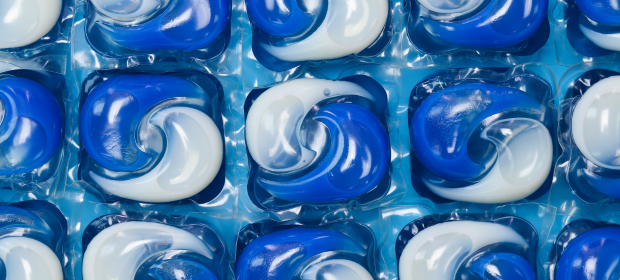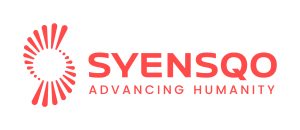For some time, the laundry detergent industry has shifted towards water-soluble pods/sachets as concentrated products, replacing traditional powders, liquids, and blocks. These products are available in single or multi-pocket formats. More recently, auto dishwash products have also moved towards multi-pocket pods, while hard surface cleaning sprays and disinfectant sprays have adopted concentrated powder or liquid pods that are diluted at the point of use in pump spray bottles.
We at Chemlink Harke Group are now exploring the use of soluble packaging in their rinse-off and leave-on cosmetic products, which represents a significant area of development. This opens up countless possibilities for joint collaboration with cosmetic brands to expand the application of this technology.
Here are some of the key benefits to soluble package which companies should be aware of:
- Reduces single use plastic
- Cuts down on the chemical use
- Reduces storage and transport costs and produces a more eco-based product line
- It also keeps skin and raw materials apart
So what other points do companies need to consider if contemplating moving to a soluble format? Our experts have answered some commonly asked questions below:
Q. What is soluble film?
The main film is based on Polyvinyl alcohol. Newer, more eco-friendly films are being developed but are not currently commercially viable.
Q. Is water soluble film biodegradable?
Yes, the majority of films used in these markets are readily biodegradable and do not contribute to micro plastics in the environment.
Q. What are the main limitations of formulating for soluble film?
The main limitation is water content. We would aim for around 5% maximum water content, although up to 10% may be possible depending on the product and film.Of course another limitation is the range of materials available that do not have high water contents or are in the right physical state to be incorporated into pod based formulations. This varies depending on the formulation type and is a restriction that should be discussed and where compromises can be agreed.
Q. What types of products are currently on the market and what is being developed?
As multiple formats are being developed, the answer becomes more intricate, however we have listed a few of the formats below;
- Direct dilutable pods – laundry detergents, auto dishwash pods, and some bespoke industrial applications. These are added directly to the machine and can be single or multiple pocket pods.
- Dilute to form – surface cleaners in spray bottles, hand wash mousse, skin creams, shampoo, body wash and hair conditioners. In some cases these require the dilutions to change rheology. Further technology is being developed to thicken on dilution so that new products will look and feel like products developed direct-to-shelf. In order to achieve rapid viscosity in products designed to thicken, special technology is required. Fortunately, we are at the forefront of developing and implementing this technology in our shampoo/body washes, conditioners, and skin creams.
Q. What are the commercial factors that you need to keep in mind?
It’s easy to get caught up in the price per pod, but that’s only one piece of the puzzle. To truly understand the total cost, you need to take into account transport, storage, chemical usage, and inventory reduction. Additionally, keep in mind that the product inside the pod is a concentrate. If you’re using it to create a finished product, like a skin cream, remember to factor in the cost of the actual cream. It’s essential to compare this cost to that of a ready-made product, minus the packaging price, which will be reused multiple times.
Q. How are costs allocated?
Drawing from our extensive technical experience in the field, we can take charge of the actual formulation development process. Our full-service cost includes development, raw material costs, toll production, film and outer packaging expenses. Also, keep in mind that SKU run size has a significant impact on cost, as the more units produced, the better the cost structure. For a complete estimate, we can provide you with the total operation cost, which is dependent on your specific instructions. This will give you a price per finished pod, fully packaged.
Q. Which parts of the process would I be responsible for?
Performance testing. This would be up to you to decide if the product meets your criteria. However, if you choose to work with us, we will ensure we work with you to best meet that criteria.
You would also be responsible for the product stability, both of the base or its dilution, including preservative function. We would of course work with you to make sure these criteria are met.
We would however be responsible for testing the compatibility of the concentrate product with the film. This would be done by our in-house testing department.
Q. What information do you need to provide at the start of the development process?
Depending on the product, there are a few things we need to get started, such as benchmarks (if applicable), preferred actives (although not always guaranteed), a list of raw materials that should not be included, pod size and dilution rates. If you are diluting the product, we will also need the dimensions of the container, especially the neck size as it affects the width of the pod. Once we have this information, we will discuss the necessary parameters.
Please note that the machines used for filling sachets can only create certain sizes, so if you require a sachet size that is not within the existing tools, a new tool will have to be made and the cost for that will need to be taken into account. It’s important to keep in mind that the formulation must be agreed upon before determining the weight that can be incorporated into a set sachet size, due to the variance in specific gravity and bulk density.
Q. What advice would we give at the start of the process?
Our team has extensive experience in formulation, filling, and film technologies. We can provide you with the best advice on what is feasible in terms of raw materials, compatibility, and timeline, as well as guide you on potential trade-offs that may need to be considered.
At Chemlink Harke Group, we are committed to providing marketing leading, eco-friendly solutions for your packaging needs. We believe that our soluble packaging offers a unique solution that can greatly benefit businesses and consumers alike. If you are interested in learning more about our soluble packaging, or if you would like to discuss possibilities in this format, get in touch using the form below. We’d love to hear from you!







